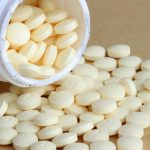Do you ever experience a weird flutter in your chest? Maybe your heartbeat feels like it skips a beat every now and then. Sometimes it might seem like it’s pounding or racing. It could even feel like your heart just performed a flip-flop.
If any of these happen occasionally and is a short-lived sensation, it’s generally not something you have to worry about. In fact, most heart palpitations are harmless, and can be caused by any number of reasons.
Stress and anxiety are at the top of the list. Among other things, the emotional distress associated with these conditions alter brain activity in a way that makes the heart more susceptible to electrical instability and palpitations.
However, easing your stress levels with things like physical activity, meditation, deep breathing techniques and mind-body exercises like tai-chi or yoga can help prevent palpitations and give you to tools to manage them if they do occur.
What Else Causes Heart Palpitations?
Other things that can cause palpitations are caffeine, alcohol, tobacco, diet pills and other stimulants. If you have occasional heartbeat disturbances and use any of these substances, they could be to blame. Palpitations are also common after exercise, because your heart beats faster during and after physical activity.
But probably one of the most important causes is an electrolyte imbalance.
The three electrolytes most commonly associated with heart palpitations are magnesium, calcium and potassium. These minerals work together to “charge up” the electrical tissue in your body. Without that “charge,” your heart muscle wouldn’t be able to contract or hold a steady beat.
An insufficiency in any of these minerals, can result in an irregular heartbeat that skips, pounds, flutters or races. It just sort of feels like your heartbeat is out of sync with your body.
The main cause of an electrolyte imbalance is pretty simple. It’s basically caused by a loss of body fluids. This could be due to excess sweating, not getting enough fluids, diarrhea, vomiting, or even some of the medications you take. So make sure you drink plenty of water and other healthy liquids every day.
In addition to palpitations, other symptoms of an electrolyte imbalance include nausea, confusion, muscle weakness, numbness or tingling of the extremities, and headaches.
You can have an electrolyte panel performed by you physician to see where your numbers fall. Better yet, you can even have your magnesium, calcium and potassium levels measured individually. If you are deficient, supplementation can help.
In the meantime, it’s a good idea to ensure that you are getting enough of these minerals in the foods you eat every day.
Nuts, seeds, beans and green veggies can go a long way toward increasing your magnesium status.
Broccoli, kale, turnip greens, and arugula all have high calcium content. Canned sardines and salmon are also high in calcium.
Beans, avocado, prunes, artichoke, mangoes, sweet potatoes and bananas are all good choices to improve your potassium levels.
When Should You Worry?
While most palpitations are harmless, that’s not always the case. If they occur frequently and for none of the reasons noted above – or if the episodes are prolonged – you need to take action. It could be a sign of heart failure.
This is especially true if you also have shortness of breath, either during activity or while resting, or if you breathe better sitting up… Or if you have a low-grade cough that produces a whiteish or pinkish mucous that indicates you are getting fluid build-up in the lungs… Or if your feet, ankles and belly start swelling due to fluid leakage.
If you are experiencing any of these additional symptoms, you’ll want to visit your cardiologist immediately to identify the source of them.
And while heart palpitations are not usually a sign of a heart attack, there are occasions when they can be.
So if at any time palpitations are accompanied by chest discomfort, heartburn, shortness of breath, sweating, fatigue or nausea… or if you develop arm, back, neck or jaw pain during palpitations, call 911.
Then, chew two or three aspirin and flush them down with a glass of water while you wait for the ambulance.
SOURCES:
Ziegelstein RC. Acute emotional stress and cardiac arrhythmias. JAMA. 2007 Jul 18;298(3):324-9.
Kandiah JW, Blumberger DM, Rabkin SW. The Fundamental Basis of Palpitations: A Neurocardiology Approach. Curr Cardiol Rev. 2022;18(3):e090921196306.





